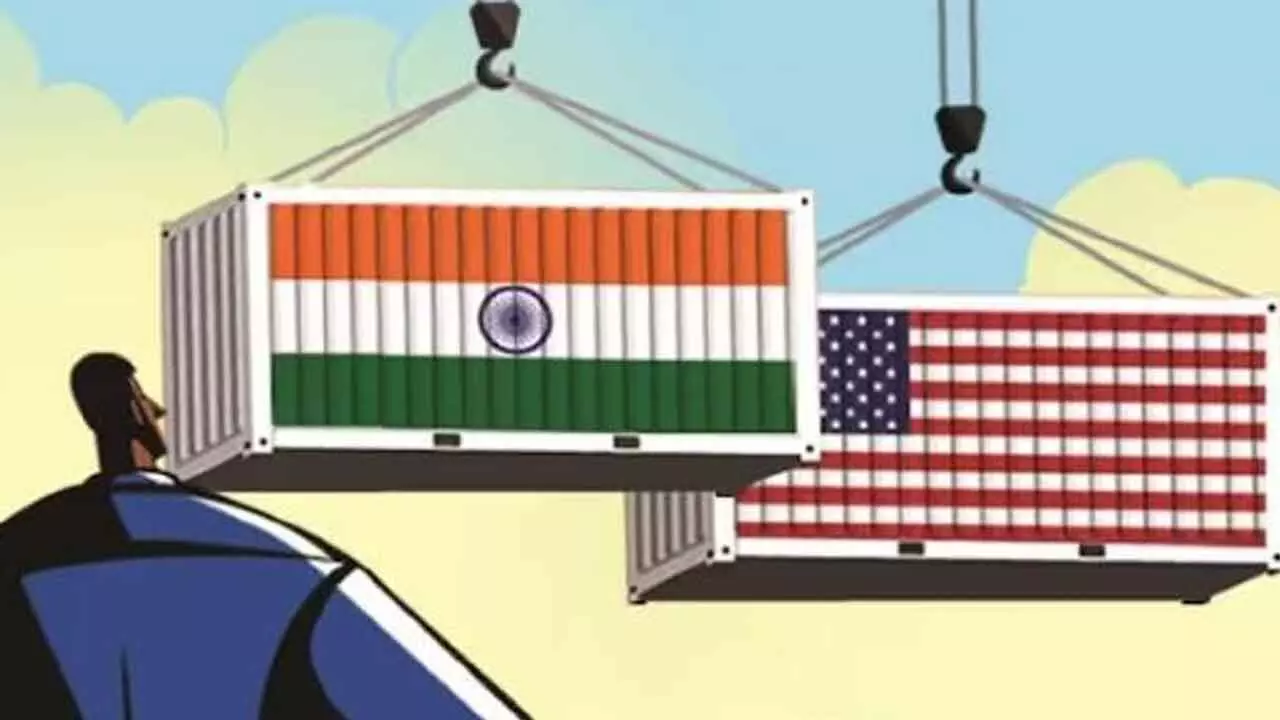India's Retaliatory Tariff Proposal May Cast Shadow On Us Trade Pact
India's retaliatory import duties take effect in early June
India's Retaliatory Tariff Proposal May Cast Shadow On Us Trade Pact

New Delhi: India's proposal to impose retaliatory import duty on certain US products in response to American tariffs on steel and aluminium could cast a shadow over ongoing negotiations for a trade agreement between the two countries, think tank GTRI said on Tuesday.
The Global Trade Research Initiative (GTRI) said that if the US engages in consultations with India on the matter or withdraws tariffs, a resolution may be reached. Otherwise, India's retaliatory import duties could take effect in early June, potentially impacting US exporters and deepening trade frictions, it added.
In a significant move targeting US safeguard duties on steel, aluminium, and their derivative products, India has formally notified the World Trade Organisation (WTO) of its intention to suspend trade concessions granted to the US. The proposed suspension of concessions could take the form of increased tariffs on selected US products. While India has not disclosed those items yet, in a similar move in 2019, it had imposed retaliatory tariffs on 28 US products, ranging from almonds and apples to chemicals. The notice, issued on May 12, marks India's invocation of its rights under a provision of the WTO Agreement on Safeguards (AoS).
This legal provision allows a country to retaliate when another member imposes safeguard measures without proper notification or consultations. India had sought consultations with the US in April, but Washington responded that the tariffs were imposed on national security grounds and should not be considered as safeguard measures. "India's latest WTO action comes at a delicate moment. New Delhi and Washington are exploring a broader free trade agreement, and this retaliation could cast a shadow over negotiations," GTRI Founder Ajay Srivastava said.
He added the move signals a tougher Indian stance, especially in politically sensitive sectors like steel and aluminium that align with its Make in India industrial strategy. "Much now depends on Washington's response.

